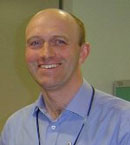 The MBBS course has been hugely successful for many years and is constantly reviewed and adjusted. However it is now some years (over 15!) since there was a major review of the whole structure and content of the programme. In that time much has changed, for example when the current curriculum was designed all of our graduates undertook two 6 month House Officer posts in Medicine and Surgery and the course was designed to give them “terminal velocity” to begin their careers. Now our graduates undertake a 2 year foundation programme and their first post might be in psychiatry or paediatrics. Of course we now also have a medical school in Malaysia which follows the same outcomes. Graduates there also undertake a two year period of House Officer Training with a similarly wide range of postings. Other external drivers to change include new national assessments in the final year such as the Prescribing safety Assessment and Situational Judgement Test and more are planned in particular the UK National Licencing Assessment.
The MBBS course has been hugely successful for many years and is constantly reviewed and adjusted. However it is now some years (over 15!) since there was a major review of the whole structure and content of the programme. In that time much has changed, for example when the current curriculum was designed all of our graduates undertook two 6 month House Officer posts in Medicine and Surgery and the course was designed to give them “terminal velocity” to begin their careers. Now our graduates undertake a 2 year foundation programme and their first post might be in psychiatry or paediatrics. Of course we now also have a medical school in Malaysia which follows the same outcomes. Graduates there also undertake a two year period of House Officer Training with a similarly wide range of postings. Other external drivers to change include new national assessments in the final year such as the Prescribing safety Assessment and Situational Judgement Test and more are planned in particular the UK National Licencing Assessment.
The most important driver to change however comes from within. The Board of Medical Studies has recognised for a number a years that there are issues relating to the structure of the programme that cannot be addressed without a major review. We wanted to wait until NUMed was firmly established before embarking on major changes and of course want and need input from Malaysia to make sure the course is appropriate there and in the UK.
The specific issues we wish to address in reviewing the curriculum are:
- Improving integration between the Phases of the MBBS course and between the institutions that deliver it (Newcastle, Durham and NUMed).
- To address the loss of momentum in relation to clinical skills that builds in Stage 3 but can drop off in Stage 4.
- To change the timing of finals and facilitate “assistantship” that is not overshadowed by high stakes summative assessments.
A curriculum review group has been established including representation from Durham University, NUMed and the 4 base-units, students and junior doctors as well as Health Education North East and lay representation. To date we have agreed, and The Board of Medical Studies has approved,some important principles that include:
- Retaining and strengthening our case based approach to teaching.
- No longer using the term “Phases” but having a single integrated programme.
- Firmly embedding assessment in our plans for change and specifically
- Completing written finals in year 4.
- Moving clinical finals to earlier in Year 5.
- Building in the potential for resitting within year.
- Changing the structure of Semester two in Year4 to include core clinical rotations.
- Strengthening and broadening assistantship in year 5.
- Increasing time spent in primary care.
The next phase is to review in detail the outcomes of the programme before implementation begins in 2017.
Dr Steve Jones, School of Medical Education
